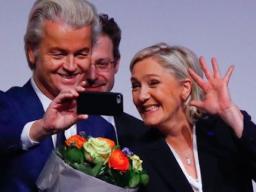The 2014 European Parliament elections were hailed as a “populist earthquake”, with parties like UKIP, the French Front National and the Danish People’s Party topping the polls. But what happened afterwards? Which parliamentary groups did they form and why? Based on interviews conducted over three years with senior figures from 14 parties, along with policy position and voting data, this presentation explains these parties’ alliances in the European Parliament. It answers three key questions: Why, unlike other ideological party types, have radical right populists long been divided in the Parliament? Why, although divisions persist, are many of them now more united than ever? And what do their international actions mean for our understanding of the European populist radical right today?
About the presenter:
Duncan McDonnell is Professor of Politics at Griffith University, Australia. He was previously a Jean Monnet and then a Marie Curie Fellow at the European University Institute. He has written extensively on right-wing populism, including, with Daniele Albertazzi, the books Twenty-First Century Populism (2008) and Populists in Power (2015) and, with Nadia Marzouki and Olivier Roy, Saving the People: How Populists Hijack Religion (2016). His next book, with Annika Werner, looks at radical right populists in the European Parliament and will be published by Hurst and OUP in May 2019.
Location
Speakers
- Duncan McDonnell, Griffith University
Contact
- Feodor Snagovsky
